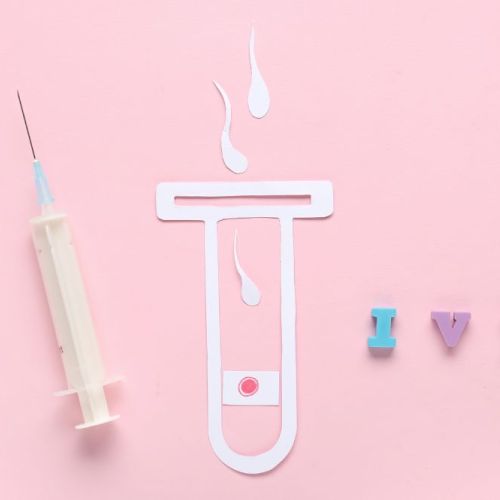Everything You Need to Know About Egg Donation

Infertility can be maddening, frustrating, and disheartening. But even if assisted fertility treatments such as in-vitro fertilization have failed for your family goals, egg donation may offer a solution.
Egg donation involves using an egg from a healthy woman of childbearing age to create an embryo that’s then placed into your uterus. This allows you to carry a child and give birth.
At California Center for Reproductive Health, Dr. Eliran Mor and Dr. Irene Woo provide this advanced fertility treatment to women living in Encino, Santa Monica, Valencia, and West Hollywood, California. Learn more about how this treatment may be an option for you.
If you’re a healthy young woman looking to help other families, find out more about how you can donate your eggs.
What happens during egg donation?
During egg donation, the donor egg is obtained from a young, healthy woman, and then is fertilized in a laboratory with your partner’s sperm or donor sperm. Prior to egg harvesting, your egg donor undergoes injections of hormones to help recruit multiple eggs. Meanwhile, you undergo hormone treatments to prepare your uterus for implantation.
Once the embryo (or embryos) are ready and deemed healthy, they’re transferred into your uterus to attach and develop into a baby.
Who is a candidate for egg donation?
If you’re suffering infertility due to issues with your eggs, then egg donation may be the solution. You may have premature ovarian failure, or premature menopause, or diminished ovarian reserve caused by age. A woman’s fertility usually diminishes greatly after age 40.
Women who’ve undergone genetic screening and have a genetic disease that could possibly be passed on to a child may choose egg donation. Dr. Mor may also recommend egg donation to those who’ve had a prior failure with in vitro fertilization that was likely due to egg quality. Same-sex male couples may also choose egg donation and gestational surrogacy.
Where do donor eggs come from?
We have an in-house donor egg bank. We obtain the eggs from donors that are carefully screened, stimulated with hormones to produce eggs, and undergo safe egg retrieval. These eggs may be used immediately (you and your donor undergo fertility stimulation at the same time) or come from a frozen reserve.
Frozen eggs offer numerous advantages, as they’re ready when you are, and you don’t have to face the risk that a donor is not available when you’re ready. Our frozen eggs are of the highest quality, and we manage all of our own screening, stimulation, and egg retrievals.
At California Center for Reproductive Health, we obtain egg donations from carefully screened donors who are compensated well for their generosity in helping couples make their dreams come true. If you’re interested in helping a family achieve pregnancy, contact our office today.
How successful is egg donation?
When an egg issue stands in the way of your fertility, egg donation provides a much greater chance of successful pregnancy as compared to using your own eggs. You and your donor undergo intensive screening, including medical evaluations, genetic tests, psychological screenings, and a mandatory infectious disease screening. Once medically cleared, you and the donor sign a binding legal contract.
The fetus implanted into your uterus may not carry your genetic material, but by carrying the child, you play an enormous role in how the baby’s genes express.
Egg donation is a highly successful option for couples struggling with infertility. Of course, the decision to pursue this – or any – fertility treatment is a difficult one. At California Center for Reproductive Health, we’re ready to assist you by providing education, compassion, and medical support when it comes to pregnancy and infertility.
If you’re ready to learn more about how our egg donation program can help you achieve a healthy pregnancy, call one of our offices or book your consultation online.
Eliran Mor, MD
Reproductive Endocrinologist located in Encino, Valencia & West Hollywood, CA
FAQ
What does a reproductive endocrinologist and infertility specialist do?
Reproductive endocrinology and Infertility is a sub-specialty of Obstetrics and Gynecology. In addition to managing medical and surgical treatment of disorders of the female reproductive tract, reproductive endocrinologist and infertility (REI) specialists undergo additional years of training to provide fertility treatments using assisted reproductive technology (ART) such as in vitro fertilization.
Reproductive endocrinologists receive board certification by the American Board of Obstetrics and Gynecology in both Obstetrics and Gynecology and Reproductive Endocrinology and Infertility.
When should I see an REI specialist?
In general, patients should consider consulting with an REI specialist after one year of trying unsuccessfully to achieve pregnancy. The chance of conceiving every month is around 20%, therefore after a full year of trying approximately 15% of couples will still not have achieved a pregnancy.
However, if a woman is over the age of 35 it would be reasonable to see a fertility specialist earlier, typically after 6 months of trying.
Other candidates to seek earlier treatment are women who have irregular menses, endometriosis, fibroids, polycystic ovary syndrome (PCOS), women who have had 2 or more miscarriages, or problems with the fallopian tubes (prior ectopic pregnancy).
What are the reasons we are having trouble conceiving?
Approximately 1/3 of the time cause for infertility is a female factor, 1/3 of the time a male factor, and the remaining 1/3 a couples’ factor.
At CCRH, we emphasize the importance of establishing a correct diagnosis. Both partners undergo a comprehensive evaluation including a medical history and physical exam.
Furthremore, the woman’s ovarian reserve is assessed with a pelvic ultrasound and a hormonal profile. A hysterosalpingogram (HSG) will confirm fallopian tube patency and the uterine cavity is free of intracavitary lesions. A semen analysis is also obtained to evaluate for concentration, motility, and morphology of the sperm.
Additional work up is then individualized to direct the best possible treatment option for each couple.
What is IVF? What is the process like?
In vitro fertilization (IVF) is the process that involves fertilization of an egg outside of a woman’s body.
The process starts with fertility drugs prescribed to help stimulate egg development. In your natural cycle, your body is only able to grow one dominant egg, but with stimulation medication we can recruit multiple eggs to continue to grow. After about 8-10 days of stimulation, the eggs are surgically retrieved and then fertilized with sperm in a specialized laboratory. Fertilized eggs are then cultured under a strictly controlled environment within specialized incubators in the IVF laboratory for 3-5 days while they develop as embryos. Finally, embryos (or an embryo) are transferred into the uterine cavity for implantation.
Should I have IVF?
Before deciding if IVF is the right choice, it’s important to sit down with an REI specialist to discuss available treatment options. For some people, other methods such as fertility drugs, intrauterine insemination (IUI) may be the best first choice treatment. At CCRH, we believe each individual couple is unique and not everyone needs IVF.
Is the IVF procedure painful?
While not painful, the fertility medications may some side effects including headaches, hot flashes, mood swings, and bloating. The injection sites may also bruise.
Will IVF guarantee a baby?
Unfortunately, no. Many people think once they start IVF it’s a matter of time that they will be pregnant and have a baby. But according to national statistics per the Society of Assisted Reproduction (SART), on average 40% of assisted reproduction cycles achieve live births in women under age 35. The chances of success then continue to decrease with advancing age.
At CCRH, we employ only evidence-based interventions to ensure patient safety and optimal outcome. While we cannot guarantee a baby, we guarantee that you will receive the best, most advanced, personalized care to help you maximize your chance of a baby.
What is the success rate for IVF?
The average IVF success rate (success measured in live birth rate) using one’s own eggs begins to drop around age 35 and then rapidly after age 40. This is due to the decline in egg quantity and egg quality as a woman ages.
Our clinic’s success rate consistently beats the national average year after year.
Do insurance plans cover infertility treatment? How much does IVF cost?
Individual insurance plans often do not have any coverage for infertility treatments. If you have a group plan, you can call members services to see if they have coverage for infertility (including consultation/workup and IVF).
After your consultation with our REI specialist, one of our dedicated account managers with sit with you to go over the cost of treatment.




